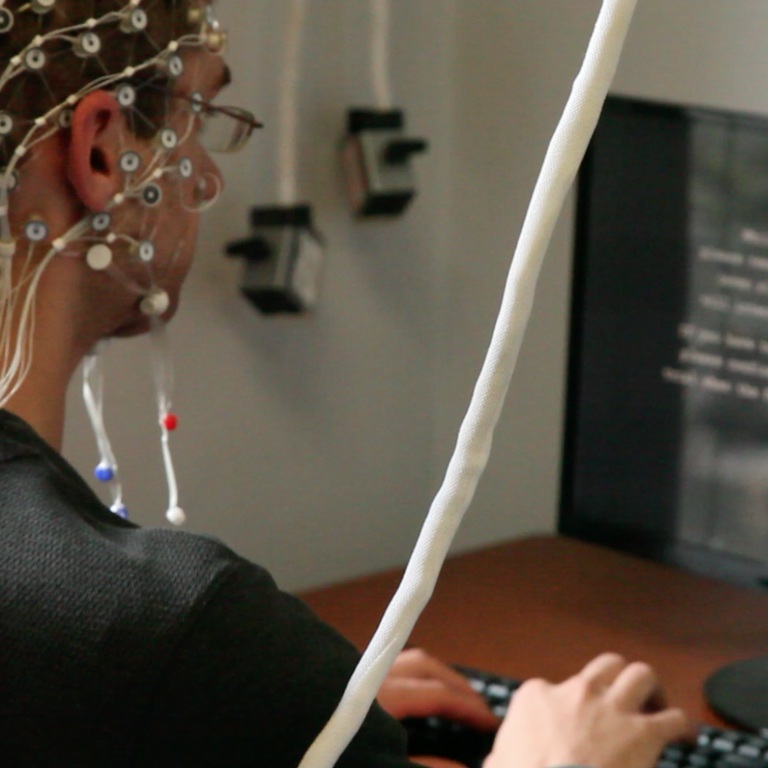by Julie Reis, Rewire
It’s natural to search for meaning in life. To find some reason for living, or a bigger purpose for being here.
We all do it, but most people struggle with pinning down a purpose. Psychologists largely agree it’s one of the most difficult journeys we take ourselves on.
But it's an important one. Research has shown that people who have a purpose — or at least a sense of one — have better physical and mental health.
One study from 2019 looked at nearly 7,000 people and noticed lower mortality rates amongst those who felt like their life was more meaningful. Another report found that people who are searching for or lacking purpose are linked to poorer health and wellbeing — all that soul searching, it seems, can really stress us out.
The purpose of a purpose
Meaning and purpose give us direction and a road map that pushes us forward in life, said Glenn Scott, the director of the Youth Partial Hospital Program at Loma Linda University Behavioral Medicine Center.
It also keeps us connected to others — our family, friends, and colleagues — and keeps a strong community in tact.
We experience less stress when we have a sense of purpose, mostly because we’re able to look at the big picture and see challenges and obstacles as minor set-backs or hurdles toward that end goal or vision.
“When things goes wrong — and, say, you have a larger purpose — you can then say these are smaller frustrations,” said Dr. Dilip Jeste, the senior associate dean for the Center of Healthy Aging and distinguished professor of psychiatry and neurosciences at the University of California San Diego School of Medicine.
You can take it in stride and move on, said Jeste, who’s led research on how purpose affects our health.
On the flip side, lacking meaning can be extremely taxing.
“Without direction, you’re kind of aimlessly going through life,” said Scott. You might withdraw from others and end up feeling lost, hopeless, and alone. That isolation can build and eventually lead to anxiety and depression.
Some people who lack meaning might give up on the small things, like showering, eating, sleeping — and when you stop taking care of yourself, a wide range of physical ailments, including diabetes, obesity, and heart disease, can develop, said Jeste.
In short, meaning gives us reason to get up in the morning and persevere regardless of whatever life throws our way.
Personal definitions apply
How you define your purpose depends on many different factors and typically varies based on your age.
Most commonly, there’s work or vocation. This is especially true for younger folks who identify with what they do professionally.
“If you’re in a career that you would do for free, then you know you’re in the right place,” Scott said.
But your career isn’t the only factor, nor is it even a necessary one. In fact, many people find meaning outside of their work.
Meaning is also deeply linked to the connections we have with others, like our friends, parents, kids, and romantic relationships, according to Jeste. How we interact and care for each other brings us a lot of value.
Many people find their purpose by having a role in their community, and past research shows that people who give back more have a stronger meaning in life. This can take on many shapes and forms — perhaps it’s through volunteering or teaching yoga classes. Maybe it’s by mentoring others, getting involved with a church, and finding a way to serve others.
Being defined by only one area of your life isn't ideal, according to Scott.
“You need to have more than one area,” he said. “Family can be one, work can be one — but you need to have at least to two three [sources of meaning.]”
Patience and introspection
There’s no rush to figure it your purpose.
“Being patient is really important,” Jeste said. Finding meaning takes time and we’re always fine tuning it. Don’t give up hope if you’re struggling with it.
“Just because you don’t have all the answers today doesn’t mean tomorrow you won’t have success,” Scott said.
Set aside 10 to 15 minutes each day to reflect on where you’re at in life and what you care about. Scott says to break it down as simply as you can: Write down five things you like to do, or five things that make you happy. If you can’t come up with five, try for three.
Once you think you’ve got an idea of what fills you up and what you want your life to look like, set some goals for how to get there. Jot down a few short-term goals (that you can accomplish in a week or so) along with a some additional long-term goals (that you’ll tackle over the next few months, even years).
Jeste said your path toward finding meaning matters. Be realistic, and be practical. If you’re striving for something that’s not achievable, your path toward finding meaning is going to be a stressful and frustrating one.
It’s an ongoing cycle
The work isn’t over once you’ve found meaning. As we change and grow, so does our purpose.
When you’re in school, for example, your meaning might be tied back to projects, sports, or friends, whereas when you’re much older, you might be more focused on your legacy or the impact you made.
Regardless of where you’re at in life, you should find things that make you happy and fulfilled.
Also, keep in mind that you won’t feel connected to your meaning or purpose every single day.
“You should have more peace and happiness and joy in what you do on a regular basis than not,” Scott said. Finding purpose takes time, and it’s a never-ending lifelong journey.
Don’t get discouraged if you haven’t found your purpose yet, and just know that your path to fulfillment is achievable.
About the author: Julia Ries is an L.A.-based writer covering health, wellness and life-type stuff for Rewire, HuffPost, VICE and Healthline, among other publications. You can see her work at juliaries.com.
Photo courtesy of Adobe



